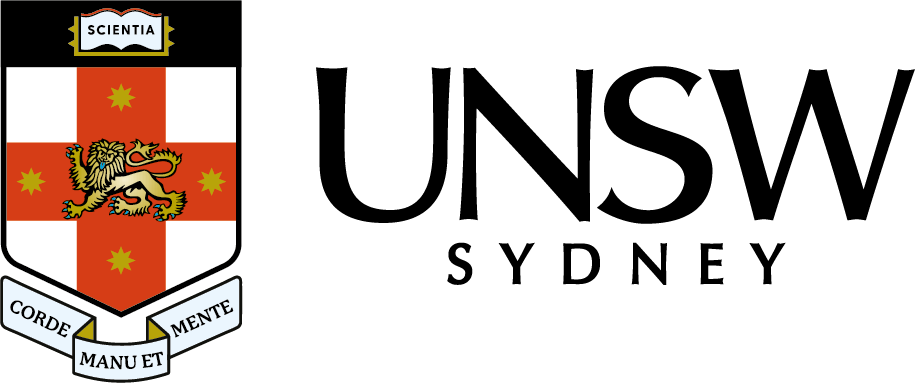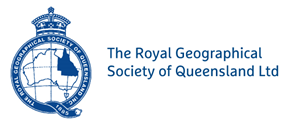
The Department of Education contributes to Australia’s economic prosperity and social wellbeing by creating opportunities and driving better outcomes through access to quality education and learning. This includes access to quality schooling to provide the knowledge, skills and values for every child to achieve their potential.
Geography’s Big Week Out and Australia’s participation in the International Geography Olympiads are supported by the Australian Government.

School of Geography, Earth and Atmospheric Sciences
The University of Melbourne is a global leader in higher education. Across our campuses, we convene brilliant minds from different disciplines and sectors to come together to address important questions and tackle the grand challenges. In a disrupted world, that capacity has never been more important. Our vision is to equip our students with a distinctive, future-facing education, personalised around their ambitions and needs, enriched by global perspectives and embedded in a richly collaborative research culture. As active citizens and future leaders, our students represent our greatest contribution to the world, and are at the heart of everything we do.
The School of Geography, Earth and Atmospheric Sciences (SGEAS) brings together discipline strengths in human and physical geography, meteorology and atmospheric science, and earth sciences. It is dedicated to achieving a better future for our students, societies and the environment.
Study and research in geography, within SGEAS, focuses on: climate change; landscape processes; environmental hazards; Indigenous knowledge; resource futures; space, place and social change; cities; and social and environmental change in the global north and global south. A geography major can be taken in undergraduate degrees in both Science and Arts.
Our geography graduates work in diverse roles across industry, at all levels of government and in not-for-profit organisations, in fields such as environmental resource management, international development, climate impacts and adaptation, sustainable futures, and urban policy and planning.

School of Biological, Earth and Environmental Sciences
School of Humanities and Languages
The relationship between people, our societies and the environment underpins many of our great global challenges. Through studying geography at UNSW, you will learn to analyse these dynamics by drawing insights from social and physical sciences. We aim to equip graduates with the skills to analyse and synthesise environmental, economic, social and political information to find solutions for our complex problems.
Geography in the School of Biological, Earth and Environmental Sciences is particularly focused on physical geography, natural hazards, human impact, and the technologies to consider these including remote sensing and geographical information science.
Geographical studies within the School of Humanities and Languages focuses on the ways physical, social, cultural, economic and political factors shape places, and, in turn, how geographical factors impact on people and their wellbeing, ecosystems, urban places and economic activity.
A geography major can be taken in a range of undergraduate degrees. It will enable you to develop transferable skills that can be applied to a range of industries. Graduates work in diverse roles across business, industry, government and not-for-profit organisations, in fields such as natural resource management, international development, environmental assessment and regional planning.

The Australian Institute for Disaster Resilience (AIDR) is the National Institute for disaster risk reduction and resilience. AIDR works to strengthen the resilience of Australian communities to disasters by sharing knowledge and collaborating across a broad range of sectors taking action to reduce disaster risk.
AIDR’s Education for Young People program promotes the development of disaster resilience education (DRE) as a vital component in children and young people’s learning. DRE is learning about natural hazards in the local environment and ways to keep communities safe from harm before, during and after an emergency or disaster, and equips young Australians with the skills and confidence to take protective action.
AIDR recognises children and young people as active citizens whose perspectives, ideas, knowledge, and participation can contribute meaningfully before, during, and after disasters. Children and young people have unique capabilities to help protect themselves and their communities from the impacts of natural hazards. With knowledge, skills, and opportunities to share their learning and take action, children and young people can contribute positively to the safety and resilience of people, places and the natural environment.
To contribute to skilled and resilient communities, young people need to understand natural hazard risks in their local environment and their role in reducing exposure and vulnerability to harm.

College of Humanities, Arts & Social Sciences
At Flinders University’s College of Humanities, Arts & Social Sciences we inspire ground-breaking ways of viewing the world.
Encompassing teaching and research activities in geography, history and archaeology, indigenous studies, social sciences, language, literature and culture, and the creative arts, the College aims to help understand the world and to shape it for the better.
We do this by offering thoughtful, diverse and challenging opportunities to understand and reshape human activities analytically, imaginatively and creatively.
Geography and environmental studies at Flinders explores the dynamic relationships between people and cultures, and the natural and built environments that shape us.
A major in Geography can be undertaken in a range of undergraduate degrees. You’ll develop the skills to make sense of the world by recognising connections, distribution and characteristics of various social and biophysical processes, and by asking where, at what scale, and why the world is the way it is. The study of geography and environment examines contemporary issues like social and environmental justice and the efficient, equitable and sustainable use of resources.

The Royal Geographical Society of Queensland (RGSQ) is a non-profit organization that promotes the study of geography. Since its establishment in 1885, the Society has brought together people from all walks of life who share an interest in geography. The Society stimulates interest in geography through a regular programme of lectures and trips, and through actively supporting geographical education and research.
RGSQ is one of the two organisations responsible for the Competition and looks after its day-to-day administration.

The Australian Geography Teachers’ Association (AGTA) is the national organisation of Australia’s state geography teachers’ associations. AGTA seeks to: foster the teaching and learning of geography in Australian schools and enhance awareness of its applications in society; promote and circulate the results of research into geography education; maintain a professional network through which teachers of geography in Australia may express opinions on educational matters; represent the interests of its member affiliates on national education decision making bodies.
AGTA is one of the two organisations responsible for the Competition.
